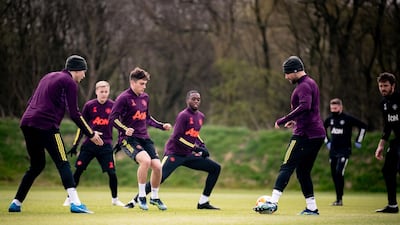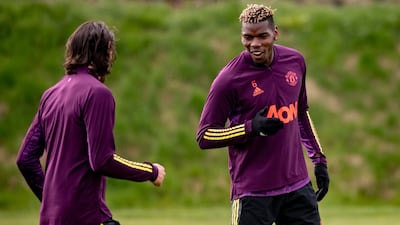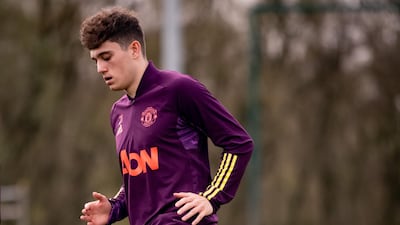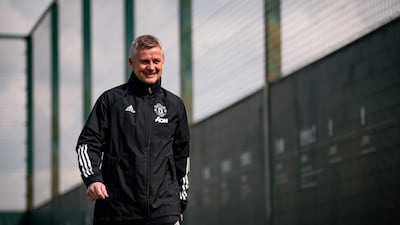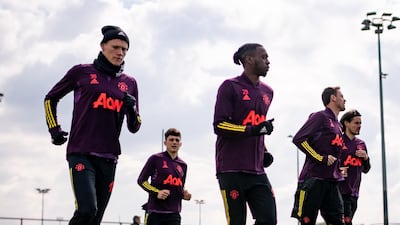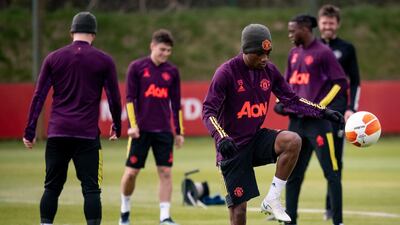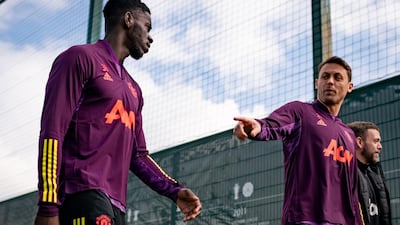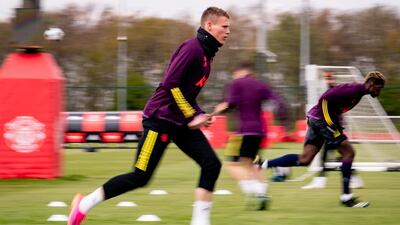Uefa chief Aleksander Ceferin said the association was working to ban breakaway European Super League clubs and their players from its competitions "as soon as possible", and urged domestic leagues to follow suit.
Twelve clubs, including the English Premier League's "big six", are part of plans that would fundamentally alter the shape of European football.
This was supposed to be the day where the spotlight was on Uefa's plans to revamp its competitions from 2024.
Instead, Mr Ceferin faced questions about the effect of a different event, which he described as "a spit in the face" of football lovers.
He was angry at the conduct of some of the leading orchestrators of the breakaway, including Manchester United executive vice chairman Ed Woodward and Juventus chairman Andrea Agnelli, calling them "greedy".
It is understood the Premier League has called its other 14 clubs to an emergency shareholders' meeting on Tuesday morning, to which Arsenal, Chelsea, Liverpool, Manchester City, Manchester United and Tottenham have not been invited.
It will be a chance for the clubs to consider what happens next.
UK Culture Secretary Oliver Dowden told the House of Commons that the Premier League and the Football Association were "considering a wide range of sanctions".
Mr Dowden said the government was ready to do "whatever it takes" to prevent the clubs from breaking away if the actions of the football authorities prove insufficient.
Mr Ceferin and the rest of the Uefa hierarchy are still seeking legal advice on the steps they could take to sanction the "dirty dozen", as he called them at one point.
He said it was still too early to say when they would know what form the sanctions could take.
"We will take all the sanctions that we can and we will inform you as soon as we have a clear answer about it, but my opinion is that [we must do it] as soon as possible," Mr Ceferin said.
"They have to be banned from all our competitions and the players from our competitions."
Three of the four Champions League semi-finalists – Chelsea, Manchester City and Real Madrid – are part of the breakaway, while Arsenal and Manchester United are in the Europa League semi-finals.
There remains the possibility of players belonging to those 12 clubs being banned from Euro 2020.
Mr Ceferin said it was up to the other domestic leagues to decide whether to kick their breakaway clubs out.
"But we are in contact with them and I'm sure they will do the same sanctions, as we will do, within the law of course," he said. "We work within the law always and within institutions."
Mr Ceferin said there was still a way back for the clubs, but vowed he would "never" agree to a deal where the Champions League fed into the Super League.
"I didn't say they're not allowed to come, that they are banned from European football forever or something like that," he said.
"It's nothing personal here. Maybe with Agnelli it's a bit personal because I know him more.
"But for the rest, I don't want them to come begging us to take them back. I just want them to respect us."
Mr Ceferin was openly disgusted at how Mr Agnelli had handled himself.
The Italian had been a Uefa executive committee member and the chairman of the European Club Association, with whom Uefa had been negotiating and consulting.
"He's probably the biggest disappointment of all," Mr Ceferin said.
"I spoke with him on Saturday afternoon. He said, 'These are all only rumours. Don't worry, nothing is going on'.
"And then he said, 'I'll call you in one hour'. And he turned off the phone.
"The chairman of an organisation with 247 clubs ran away from the same organisation. I mean, I've never seen anything like that in my life."
He said he did not have much contact with Mr Woodward.
"But he called me last Thursday evening, saying that he's very satisfied with the reforms, that he fully supports the reforms, and that the only thing he would like to speak is about financial fair play," Mr Ceferin said.
"And obviously he already signed something else."
The board of the ECA, from which the 12 clubs resigned on Sunday night, met on Monday needing to fill key positions, not the least being former chairman Mr Agnelli.
The body announced that Paris Saint-Germain's Nasser Al Khelaifi, Bayern Munich's Michael Gerlinger and Ajax's Edwin van der Sar will be part of an executive committee managing operations during a transition period.
And Bayern Munich chief executive Karl-Heinz Rummenigge was nominated to replace Mr Agnelli as one of the ECA's two representatives on Uefa's executive committee.
Mr Rummenigge earlier said his club was opposed to the plans.
"I don't think the Super League will solve the European clubs' financial problems caused by coronavirus," he said.
"Rather, all clubs in Europe should work in solidarity to ensure that the cost structure, in particular the players' salaries and the fees for the consultants, are adjusted in order to make European football more rational."
Monday began with the news that the Super League had written to Uefa and Fifa to inform them that they had filed court motions to protect itself against any punitive measures the governing bodies might impose.
"They sent a letter asking for an urgent meeting but I don't think it is so urgent," Mr Ceferin said.
"I got a letter from the so-called Super League, signed by I don't know who, because it was without a name. Probably a Super person."
The Super League says its plans for solidarity payments are "substantially higher" than those on offer from Uefa, to which Mr Ceferin said: "They don't care about solidarity."
"They care about their pockets. They care to be famous but they will be famous in the wrong way."
World players' union Fifpro later said it would "vigorously oppose" any moves to block players from representing their national teams.
Fifa has already come out in opposition to the plans.
Mr Ceferin said Fifa president Gianni Infantino would appear at the Uefa Congress on Tuesday.
"He said to me personally that he is against the Super League, and that he will say that publicly.
"He says that he fully supports us and that he will strongly condemn this project."
The decision to go public on the Super League followed a disagreement among some clubs over the level of commercial control they would have over the new-look Champions League.
Mr Ceferin insisted Uefa would always have the majority share over such a venture.
British Prime Minister Boris Johnson has condemned the plans for the breakaway league.
BT Sport, UK broadcaster of the Premier League and Champions League, said: "BT recognises the concerns raised by many of football's leading voices and fans, and believes the formation of a European Super League could have a damaging effect to the long-term health of football in this country."
The money on offer from the Super League has been likened by a source within a major broadcaster to the promise of an extra £350 million a week to the National Health Service on the side of a bus during the Brexit referendum in 2016.
The broadcaster, a Premier League rights holder, would expect all contracts to be rewritten if a Super League went ahead, the source said, which would have a negative impact for the English top flight's breakaway six and the rest of the league.
The source also warned that the closed nature of the Super League, with the same teams going up against each other year in and year out without the threat of relegation, may not be attractive broadcasters.
The British government has brought forward its fan-led review of football governance as a result of the Super League developments. It will be led by former sports minister Tracey Crouch.
The news even drew a reaction from the Royal family, with the Duke of Cambridge, who is the president of the FA, tweeting: "Now, more than ever, we must protect the entire football community, from the top level to the grassroots, and the values of competition and fairness at its core.
"I share the concerns of fans about the proposed Super League and the damage it risks causing to the game we love."
A YouGov poll of 1,730 football fans found 79 per cent opposed the idea of a Super League.
Sixty-eight per cent of respondents said they strongly opposed it, while three quarters had limited or no interest in watching such a competition.
